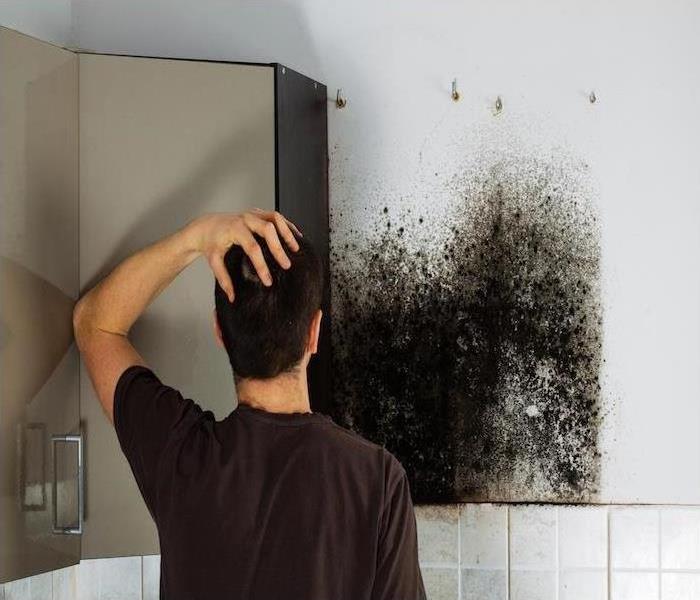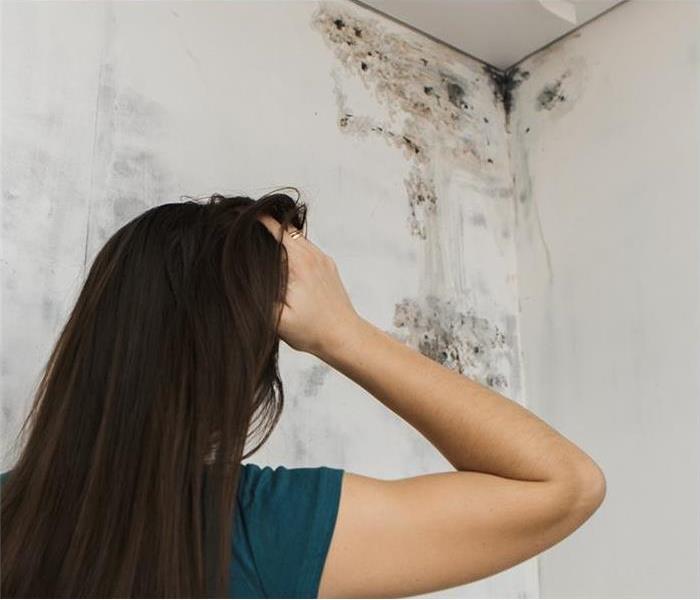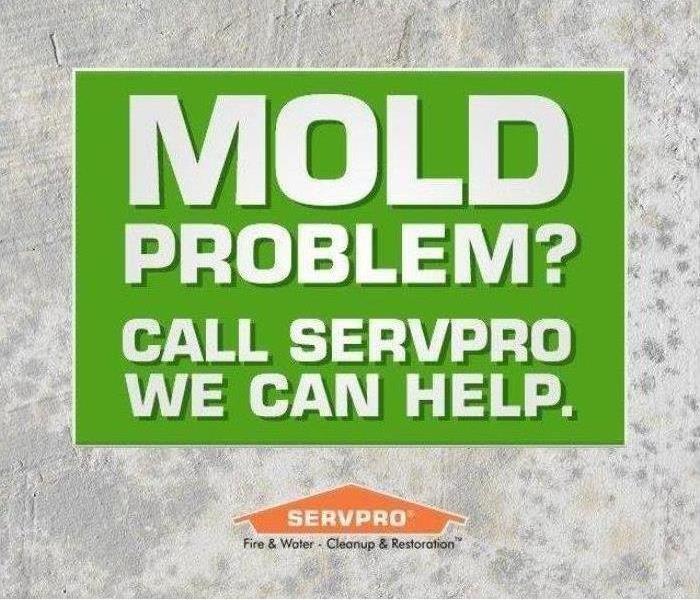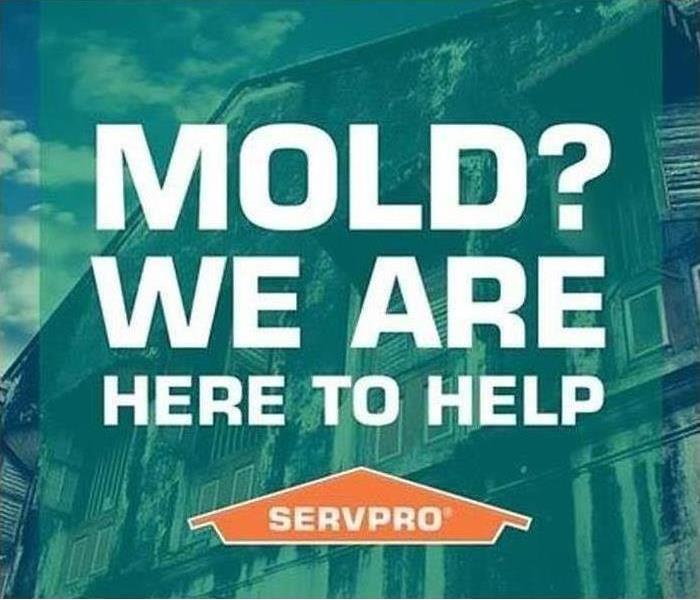Archived Mold Remediation Blog Posts
Preventing Mold Growth During the Winter Season | SERVPRO of Westfield
1/8/2025 (Permalink)
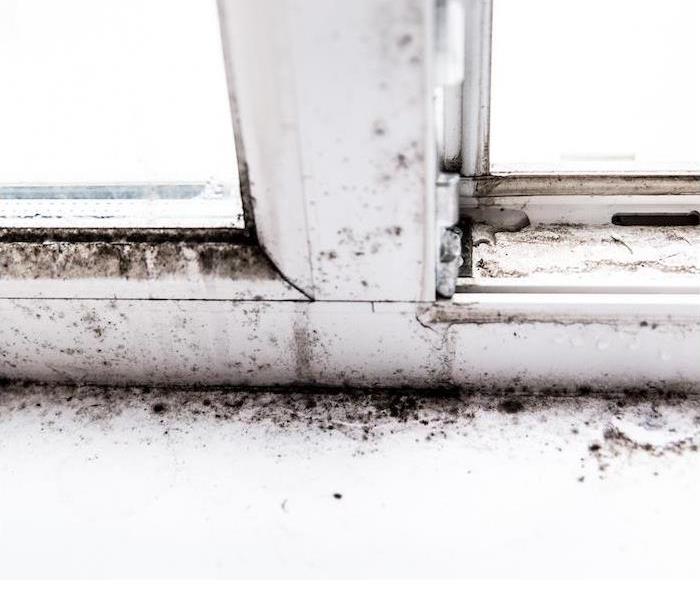 Prevent Winter Mold: Stop mold growth this season with SERVPRO of Westfield's expert prevention tips!
Prevent Winter Mold: Stop mold growth this season with SERVPRO of Westfield's expert prevention tips!
Winter in Westfield may not be synonymous with heavy snowstorms, but our area still experiences cold snaps and occasional freezing rain. With average winter temperatures ranging from the mid-30s to mid-50s, homeowners often rely on heating systems and keep their homes closed up tightly to stay warm. Unfortunately, this creates the perfect environment for mold growth if precautions aren’t taken. Here’s how to keep your home mold-free this winter with tips from SERVPRO of Westfield.
Why Mold Loves WinterWhile mold might be more commonly associated with the warmer, humid months, it can still thrive in the winter. When we crank up the heat and keep windows shut, we increase humidity levels indoors, especially in rooms like bathrooms, kitchens, and basements. Moisture buildup from cooking, showering, and even breathing can lead to mold growth if not properly managed. Additionally, any leaks from winter rains or uninsulated pipes that freeze and burst can introduce more moisture into your home, which is the last thing you want.
Tips to Prevent Mold Growth This Winter1. Monitor Indoor Humidity LevelsKeeping indoor humidity between 30-50% is crucial. Use a hygrometer to measure humidity and run a dehumidifier if necessary. Pay close attention to areas like the basement or attic, where humidity can easily spike.
2. Proper VentilationMake sure your home is well-ventilated, even during the colder months. Turn on exhaust fans when cooking or showering, and consider cracking a window for a short period to let moist air escape. If you notice condensation on your windows, it’s a sign that humidity is too high.
3. Check for LeaksInspect your roof, gutters, and plumbing for leaks or cracks. Winter rain and fluctuating temperatures can lead to water intrusion, which provides the perfect breeding ground for mold. Address any issues promptly to prevent moisture from spreading.
4. Regularly Maintain Your HVAC SystemA well-maintained HVAC system not only keeps your home warm but also circulates air efficiently to prevent moisture buildup. Make sure to change filters regularly and have your system serviced to avoid any hidden issues that could lead to mold.
Stay Mold-Free With SERVPRO of WestfieldTaking these proactive measures can save you from the hassle and cost of mold remediation. However, if you do find mold in your home, professional assistance is essential. The team at SERVPRO of Westfield has the expertise and advanced equipment to safely and effectively handle mold problems, ensuring your home stays healthy year-round.
For more information or to schedule a consultation, visit SERVPRO of Westfield. Don’t let mold take hold this winter—contact us today and let our experts give you peace of mind.
Water Damage Can Have a Devastating Impact on Business | SERVPRO® of Westfield
3/14/2023 (Permalink)
 Experienced water damage in your commercial building? SERVPRO of Westfield can help you get dried out quickly.
Experienced water damage in your commercial building? SERVPRO of Westfield can help you get dried out quickly.
For businesses, water damage is a common problem. Even a small amount of water can cost you and your team time and money. A leaky sink may appear to be insignificant at first, but ignoring problem areas like this is a recipe for workplace disaster.
Water damage may appear to be an unavoidable problem, but there are numerous places to look to ensure your business isn’t flooded with water. Catching problems like leaks can be simple as long as you know exactly where to look.
3 Common SourcesInspect these weak spots around your workplace often so you can stop water in its tracks before it leaves you with sudden downtime and expensive repairs:
1. The roof. Roof leaks can be slow and gradual or quick and abrupt as a result of stormy weather. It’s easy to overlook water loss that begins on your roof because it can occur where you can’t see it. To avoid allowing problems to slip by undetected, schedule routine inspections and cleanup after severe weather events.
2. Bathrooms. Almost 15% of water emergencies in the workplace begin when water leaks from tiny punctures along toilet and sink pipes. If you have multiple bathrooms situated throughout your building, instruct several team members to watch these areas. That way, if problems arise where you can’t see them, they’ll be able to identify them quickly before they worsen.
3. Water heaters/HVAC/boilers. Equipment that is attached to a water line commonly leaks due to clogs or malfunctions. Standing water surrounding your HVAC systems or a rise in water pressure are signs of a water emergency in its early stages.
Take Preventive StepsCommercial water loss can be devastating to deal with, but a rapid response can help to keep things under control. Time and money can be saved when you work to catch water damage before it escalates.
Building a plan of prevention is one of the first things you should do as you make efforts to avoid business water damage. SERVPRO of Westfield can offer a helping hand as well by creating an Emergency Ready Plan tailored to the needs of your business.
A timely response is the best way to deal with water damage before it gets any worse. Jump into action as fast as possible when problems arise, and contact SERVPRO if you’re left with a mess. We can rapidly restore your losses so you and your team can get back on track!
Experienced water damage in your commercial building? Contact us to get dried out quickly.
Industrial Hygienists Are Mold Infestation Experts
6/10/2021 (Permalink)
Industrial hygienists also go by the name environmental hygienists. A hygienist can evaluate your mold problem, create a report and explain the findings. The report includes the types of mold present, the infested locations, and the severity of the infestation.
When it comes to insurance, the hygienist’s report plays a crucial role. The insurance adjuster uses the report to determine a course of action for mold cleaning. Insurance companies depend on the expert opinions of Certified Industrial Hygienists. Without an expert evaluation, a successful cleanup is difficult.
Mold Cannot Hide From Industrial Hygienists
One might think that a hygienist is someone who walks through your home with a clipboard and takes notes. That is certainly part of the job. Don’t be surprised when the gloves, mask, and tools come out. The hygienist’s job is also to find mold wherever it hides. The job includes removing wallboard and searching crawlspaces to discover mold’s hiding places.
If your home in the Houston, TX area suffers from a mold infestation, it’s time to pick up the phone. There are local certified hygienists and mold remediation specialists who are ready to evaluate your mold problem and begin the mold cleaning process right away. They are here to help.
Bathrooms are a breeding ground for mildew and mold. With moisture and heat constantly surging through your Houston, TX, bathroom, it can seem like an insurmountable task to keep it fresh and dry. Luckily, bathroom mildew is preventable.
Tips To Keep Your Bathroom Mold-Free
6/10/2021 (Permalink)
Here are four tips to keep your humidity problem at bay.
- Always run your bathroom fan while showering or bathing. Introducing more airflow into your bathroom with the use of your built-in bathroom fan is the easiest way to prevent mildew. Keep your fan running for the duration of your shower and for at least half an hour after for maximum results. With increased ventilation, the majority of moisture in your bathroom should dissipate quickly.
- After you’re finished with your shower, remove moisture from your shower surround. It’s easy to get rid of a good portion of post-shower wetness with an inexpensive squeegee tool. One pass with your squeegee across your shower walls and your humidity problem will literally be heading down the drain.
- Keep your bathroom caulking fresh. After years of being exposed to moisture, the caulk lines around your bathroom tile, tub surrounds and shower doors may not be as secure as they once were. It is important to always check your caulking for bathroom mildew and mold while you clean. To prevent them, try to use heavy-duty cleaning products on and around your caulk lines regularly, such as a bleach-based or ammonia-based cleanser.
- Contact mold remediation at the first sign of mold. When you do find spots of mold that have spread to a larger area in your Houston, TX, home, don’t risk furthering the damage with DIY removal techniques. Call your local mold remediation and removal company to take care of it right the first time.
Definitely call in professionals if you find mold in your home. However, by following these simple steps to prevent bathroom mildew, your humidity problem can be a thing of the past.
What Causes Mold and How Can You Prevent It?
6/9/2021 (Permalink)
Being exposed to mold indoors can cause health effects, so it’s important that you know what causes mold and how to prevent mold from building up in your home, school, or office building.
What Causes Mold?
Mold can be found almost anywhere and it can grow on virtually any organic substance so long as moisture and oxygen are present. It can grow on wood, paper, carpet, food, and insulation. The cause of indoor mold is excessive moisture accumulating in buildings or on building materials especially if the moisture problem remains undiscovered or unaddressed for an extended period of time.
It’s impossible to eliminate all mold and mold spores in an indoor environment but indoor mold can be controlled by limiting the amount of moisture in the building. Moisture requires water to grow so preventing moisture problems from occurring inside buildings is of the utmost importance.
There are many causes of moisture problems including uncontrolled humidity. Some moisture problems have led to changes in building construction practices in the 1970s, 1980s, and 1990s. In some situations, they’ve resulted in buildings being tightly sealed but this can cause problems too. A building too tightly sealed may lack adequate ventilation, which could potentially lead to additional moisture buildup.
Moisture problems could include roof leaks, landscaping, or gutters directing the water into or under the building and unvented combustion appliances. Delayed maintenance or insufficient maintenance has been associated with moisture problems occurring in schools and large buildings. It’s easy to accumulate moisture in less insulated buildings like portable classrooms and other temporary structures so these types of buildings are more susceptible to having mold problems.
Prevention
Since mold can grow almost anywhere and on just about any organic substance, it’s very difficult to prevent mold from growing. However, there are preventative steps you can take that will decrease your chances of having mold in your building.
Because moisture is the cause of mold, fixing leaky plumbing or any other leaks as soon as possible in the building will go a long way toward preventing the appearance of mold. Also, watch for condensation spots or wet spots around the building. Make sure to fix the source of this moisture as soon as possible to reduce the chances of it turning into mold.
The best way to prevent mold from building up in your building is to prevent moisture from accumulating in the building. You can do this by increasing the surface temperature or reducing the moisture level, the humidity, in the air. To increase the surface temperature in the building, insulate or increase the air circulation throughout the building. You can reduce the moisture level in the air by repairing any leaks in the building, increasing the ventilation if the air is cold and dry outside, or dehumidifying if the air is warm and humid outside.
Make sure to keep heating, ventilation, and air conditioning (HVAC) drip pans clean, flowing properly, and unobstructed as this is another potential cause of mold growth in the building.
Hidden Mold
In some cases, you could have hidden mold or indoor mold that may not be obvious. It’s possible that mold may be growing on hidden surfaces throughout the building such as the backside of drywall, wallpaper, paneling, the top of the ceiling tiles, or the underside of carpets and pads.
Possible locations where you could find hidden mold may be pipe chases and utility tunnels with leaking or condensing pipes, walls behind furniture where condensation can form, condensate drain pans inside air handling units, porous thermal or acoustic liners inside ductwork, or roof materials above the ceiling tiles which can be caused due to roof leaks or insufficient insulation.
There are some building materials like drywall with vinyl wallpaper or wood paneling that can act as vapor barriers that trap moisture underneath its surface providing a moist environment where mold can grow.
If your building smells moldy or you know there’s been water damage in the building, you may suspect mold is in the building even though you can’t see the source. If you start looking into the hidden mold, it’s important to remember that investigating hidden mold may be difficult and will require caution. Be sure to always use personal protective equipment when investigating a potential mold problem.
If you think you have mold in your home, school, or office building, call the trusted professionals at SERVPRO to remediate the problem.
Conditions In Houston Might Be Right For Mold
5/14/2020 (Permalink)
It’s estimated that more than 1 million types of mold exist, yet less than 10 percent have actually been named. This means mold is very common in both indoor and outdoor environments. While mold and humans can sometimes co-exist without issue, there are certain species of mold that can cause health effects for some people.
If the right conditions exist, mold will grow. Those conditions include:
- Water - Different mold types require varying amounts of liquid before growth begins.
- Temperature - Normal indoor temperatures will promote mold growth.
- Time - Initial mold colonizers can take hold within one day after being exposed to an adequate water supply.
Mold growth can occur in any home, so it’s important to keep an eye out for situations that might promote mold activity. Roof/chimney leaks, wet basements, or condensation from ducts that dampen surrounding insulation are just a few examples of issues that make a house a prime target for mold growth.
If you suspect mold in your home, call SERVPRO of Westfield to assess the situation. We have the knowledge, tools and track record to effectively remediate mold in your home or business.
If you suspect mold, call us today at 281-907-0018
What to Do:
- Stay out of affected areas.
- Turn off the HVAC system and fans.
- Contact SERVPRO of Westfield for mold remediation services.
Houston Residents: Follow These Mold Safety Tips If You Suspect Mold
5/14/2020 (Permalink)
If you see visible mold, do not disturb it. You can inadvertently spread the mold infestation throughout your home. When mold is disturbed, the mold can release microscopic mold spores which become airborne and can circulate inside your home.
What to Do:
- Stay out of affected areas.
- Turn off the HVAC system and fans.
- Contact SERVPRO of Westfield for mold remediation services.
What Not to Do:
- Don’t touch or disturb the mold.
- Don’t blow air across any surfaces with visible or suspected mold growth.
- Don’t attempt to dry the area yourself.
- Don’t spray bleach or other disinfectants on the mold.
About Our Mold Remediation Services
SERVPRO of Westfield specializes in mold cleanup and restoration, in fact, it’s a cornerstone of our business. Our crews are highly trained restoration professionals that use specialized equipment and techniques to properly remediate your mold problem quickly and safely.
If You See Signs of Mold, Call Us Today –281-907-0018
Damp Areas Can Cause Mold
1/9/2019 (Permalink)
HAVE YOU HAD ANY LONG TERM MOISTURE ISSUES IN YOUR HOME?
Besides causing major interruptions to your property, exposure to mold can present serious health effects. Mold grows in damp, warm humid environments. If you have had previous water issues, there could be a high possibility you have mold growing in your Houston, TX home/establishment. Most common forms of mold may be found around bathrooms, basements, ceilings, windows, insulation, and around plumbing pipes. Signs that you have a moisture problem include water stains or discoloration on walls, floors, or ceilings. If your walls are bowed, bulging or warped it probably means moisture has gotten into them. Additional signs that you may be facing a moisture problem are surface abnormalities like peeling, bubbling, or cracking of the paint or wallpaper. Seeing these signs could be a clue that there is mold growing within or behind the material.
The above signs and problems in homes are usually created by leaks that breed mold. Mold can spread quickly through a property if left untreated. Mold growth from leaks can often be hidden, even if the leak is not behind the surface, due to seeping. If you have had previous water leaks, even if you haven't seen the signs of water damage, it's a good possibility that you may have mold and should get it checked. SERVPRO can quickly respond to contain the infestation to help prevent the spread of mold to other parts of the property.
If You See Signs of Moisture or Mold, Call SERVPRO of Westfield Today – (281) 907-0018.
Understanding Mold
1/8/2019 (Permalink)
Visible mold growth might seem like an obvious sign. However, suspecting mold in your Houston, TX home could be a little tricky, and often overlooked as soot or dirt. Unfortunately the only clues that may alert us of growing mold is the odor. If mold can not be physically see on the surface do not ignore the smell. Make an attempt to thoroughly inspect the home before the mold problem increases.
Even if the mold growth is small, you should take action immediately. Small mold patches can spread, especially in the right conditions. Visible mold growth can also be a sign of a larger hidden mold colony. If you don't take care of mold soon, it can lead to bigger problems within your property.
You may not realize there is mold in your house, especially, if it is unusual looking. Some molds may appear white and thread-like while others may look like small clusters of black spots. Mold can be black, gray-brown, gray-green, or white in color. Mold growing behind surfaces can even appear orange, pink or purple.
If you suspect that your Houston, TX area home or business has a mold problem, SERVPRO of Westfield is well equipped to take care of remediation of your property.
If You See Signs of Mold, Call SERVPRO of Westfield Today – (281) 907-0018
https://www.SERVPROwestfield.com
HAVE A MOLD PROBLEM?
1/4/2019 (Permalink)
Mold remediation is a serious job that is best handled by a professional mold inspector, also known as a quality air specialist. Using a licensed mold remediation specialist helps to alleviate undetected mold exposure, because mold can be tricky and sometimes invisible to the naked eye. But even when a form of it is right before your eyes, you can be unsure. Prolonged exposure to mold can cause health effects. Here at SERVPRO of Westfield in Houston, TX we take pride in knowing that we are professionally equipped in providing immediate relief from prolonged growth and exposure.
At SERVPRO of Westfield we use dehumidifiers to reduce the humidity present in water damaged properties. With specialized equipment and a professional team of experts, you may have comfort in knowing that insurance companies trust our team when their policy holders experience such damages. SERVPRO of Westfield is contacted by many customers and insurance companies when they experience a loss or damage, because they trust the work will be completed with expertise and precision.
Many homeowners are unlikely to have access to the specialized equipment needed to eliminate mold, but here at SERVPRO we have the ability to help you. Got Mold? SERVPRO of Westfield is waiting for your call.
If You See Signs of Mold, Call SERVPRO of Westfield Today – (281) 907-0018
https://www.SERVPROwestfield.com
Solving Mold Problems In Your Houston, TX Home
1/4/2019 (Permalink)
Mold is a serious issue. At one time or another, we have all experienced mold, whether it has been in an apartment or a house. When experiencing mold the important thing to consider is getting a professional involved to handle it properly. If you start to notice light signs of mold, it can be aided by keeping areas clean, wiped down, and dry. But there may be more that what the eye can see. It is highly important to get mold checked out, as it can lead to further problems on the property.
Here at SERVPRO of Westfield we have trained and certified technicians that are always prepared and available to handle the mold remediation job for you. SERVPRO technicians use EPA standard products to ensure the job is completed safely and in a timely manner. Our business takes pride in the promise to make your home safe again and our best to assist in keeping it that way.
SERVPRO of Westfield is a phone call away and waiting to hear from you. Schedule an appointment today:
Call SERVPRO of Westfield (281) 907-0018
https://www.SERVPROwestfield.com
Facebook: https://www.facebook.com/SERVPRO9458
Mold Prevention
10/11/2018 (Permalink)
Mold can grow anywhere: on carpet, clothing, food, paper, and even in places you can't see, such as the backside of drywall, areas inside walls around leaking or condensing pipes, and above ceiling tiles.
Not only is having a mold problem difficult and costly to fix, but mold can also possibly produce allergens and irritants.
So what can you do if you're concerned about mold growing in your home? The best approach is preventing mold before it becomes a problem. The key to mold prevention is simple: moisture control.
9 Tips to Help Prevent Mold:
- Identify problem areas in your home and correct them. You can't mold-proof your home, but you can make it mold-resistant. Do you notice frequent condensation on an upstairs window? Is there a water stain on the ceiling from a persistent leak? Preventing mold from growing or spreading might be as simple as ripping up carpet in a damp basement, installing mold-resistant products, or repairing damaged gutters.
- Dry wet areas immediately. Mold can't grow without moisture, so tackle wet areas right away. If you've experienced a flood, remove water-damaged carpets, bedding, and furniture if they can't be completely dried. Even everyday occurrences need attention: don't leave wet items lying around the house, and make sure to dry the floor and walls after a shower. Don't leave wet clothes in the washing machine, where mold can spread quickly. Hang them to dry — preferably outside or in areas with good air circulation.
- Prevent moisture with proper ventilation. It may be that your routine domestic activities are encouraging the growth of mold in your home. Make sure an activity as simple as cooking dinner, taking a shower, or doing a load of laundry doesn't invite mold by providing proper ventilation in your bathroom, kitchen, laundry room, and any other high-moisture area. Your energy-efficient home may be holding moisture inside, so open a window when cooking or washing dishes or showering, or run an exhaust fan.
- Equip your home with mold-resistant products. Building a new home or renovating an old one? Use mold-resistant products like mold-resistant drywall or mold-resistant Sheetrock, and mold inhibitors for paints. Moisture-resistant drywall is especially valuable in areas prone to wetness, such as bathrooms, laundry rooms, basements, and kitchens.
- Monitor humidity indoors. Purchasing a moisture might be great, but you can also detect high humidity by simply paying attention to potential problem areas in your home. Telltale signs of excessive humidity include condensation on windows, pipes, and walls.
- Direct water away from your home. If the ground around your home isn't sufficiently sloped away from the foundation, water may collect there and seep into your crawlspace or basement.
- Clean or repair roof gutters. A mold problem might be a simple matter of a roof that is leaking because of full or damaged gutters.
- Improve air flow in your home. According to the EPA, as temperatures drop, the air is able to hold less moisture. Without good air flow in your home, that excess moisture may appear on your walls, windows and floors.
- Keep mold off household plants. The moist soil in indoor plants is a perfect breeding ground for mold. Instead of getting rid of your plants, try adding a bit of Taheebo tea to the water you give to your houseplants.
For areas that have already fallen victim to mold, there is hope. SERVPRO of Westfield is a leader in the North Houston community in mold remediation and here to help! Please call (281) 907-0018 and we will make it “Like it never even happened.”
Hazardous Mold Can Begin To Develop Within 24 Hours After Water Damage
1/8/2018 (Permalink)
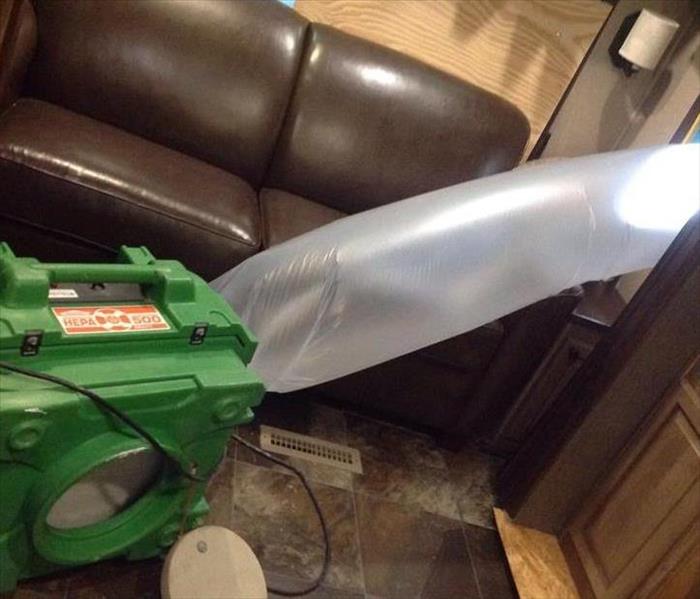 Air Scrubber, professional equipment provided by SERVPRO.
Air Scrubber, professional equipment provided by SERVPRO.
With the expertise and reputation of SERVPRO of Westfield, we can handle water damage emergencies immediately, as the threat of potentially hazardous mold can begin to grow and develop as soon as 24 hours after the original water damage.
When a water loss occurs, SERVPRO of Westfield uses specialized equipment like dehumidifiers to dry properties and reduce the humidity levels. This is an extremely important part of cleanup after water damage.
Normal drying methods may be the first thought of the customer, but in most cases, are simply not enough to reduce the humidity levels in a home after a major accident of water loss. Mold is able to grow behind cabinets, walls and under flooring very quickly, so the threat has to be handled by professionals who know how to properly dry flooring, walls, and other fixtures on the property.
- Mold is present almost everywhere, indoors and outdoors.
- Mold spores are microscopic and float along in the air.
- Mold spores thrive on moisture. Mold spores can quickly grow into colonies when exposed to water. These colonies may produce allergens and irritants.
- Before mold remediation can begin, any sources of water or moisture must be addressed. Otherwise, the mold may return.
- Mold often produces a strong, musty odor and can lead you to possible mold problem areas.
If you think that your home or business may have a mold problem, we can assist with having you scheduled for a certified mold test and inspection, with a follow up service to use our specialized training, equipment, and expertise to remediate your mold infestation.
If You See Signs of Mold, Call Us Today – 281-761-2373
 Prevent Winter Mold: Stop mold growth this season with SERVPRO of Westfield's expert prevention tips!
Prevent Winter Mold: Stop mold growth this season with SERVPRO of Westfield's expert prevention tips!





 24/7 Emergency Service
24/7 Emergency Service

